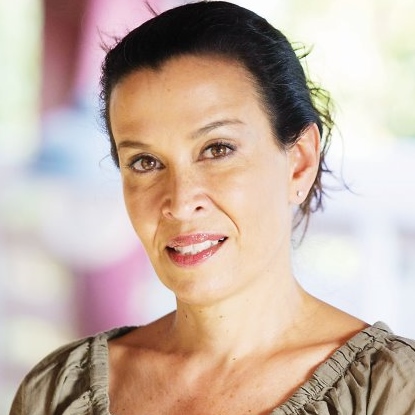
SA

Providing aid where others fear to tread
TALI FEINBERG
“Our motto is ‘nobody asks permission to kill, we don’t ask permission to save lives’,” says Lusky. She says the work of most non-governmental organisations (NGOs) is governed by laws and diplomacy. For example, aid can only be delivered to a sovereign entity, like President Assad in Syria or Hamas in Gaza. This means that aid is often held back from the people who need it most, and it can be held hostage as a weapon.
Lusky’s organisation goes against all that. It delivers aid wherever it is needed, to whoever needs it, be they victims of war or natural disaster – even to countries that don’t have diplomatic ties with Israel, and in places where other aid agencies have pulled out for safety or diplomatic reasons. IFA is probably the only aid organisation in the world doing this, but Lusky hopes to change the whole NGO sector so that other organisations will follow her lead.
“IFA is a response to the hypocrisy of Chapter 7 of the United Nations (UN) Security Council, which says that prevention of aid is not considered a crime. For example, if aid is sent to Syria, it lands up in the regime’s hands. As member countries of the UN, we have assisted Assad’s army, and we all have blood on our hands. None of our support lands up in the victims’ hands,” she says.
“It’s a clash between law and justice: the law often prevents aid distribution based on needs, and is guided by political issues. But I place life above any law – as the halacha says, life is sacred, and we are commanded to devote ourselves to justice.”
IFA focuses on getting aid to civilians – the people who can’t leave. “It’s always within the disaster site. This is another way we are different from other NGOs, who mostly work with refugees who have fled.”
She founded the organisation after her brother was badly wounded in Lebanon during his army service. As she sat at his bedside, she bargained with G-d that if her brother recovered, she would do something to help others receive the medical support that he got as an Israeli citizen. She knew that in most conflict zones, this is not a right.
When her brother walked out of hospital, Lusky joined NGOs in their work. One of her first missions was to Rwanda during the genocide. Later, she went to Sri Lanka after the Boxing Day tsunami. But in both places, when she saw that aid was not being given to the enemies of the people in charge, she began to wonder if there was another way. She started IFA in 2005.
Because of the risky reality of this work, it’s often done undercover and under the radar, especially in countries that are hostile to Israel. Because of its secretive nature, it’s difficult to attract donors and support.
In addition, “Being so undercover means that we don’t have the opportunity to change hearts and minds if people see Israel as the enemy,” she says, although sometimes if she feels that it’s safe, she does reveal that she is Israeli. “We risk our lives for the children of our sworn enemies because as Jews, we are commanded to do so.”
Though the Israeli government can’t support an organisation that works in places that are Israel’s enemies, it has recognised her in other ways. In 2015, Lusky was asked to light a flame on Israel’s Independence Day, one of the greatest honours an Israeli citizen can receive.
IFA was chosen by the Israeli Defense Forces to assist in getting aid across Israel’s border to Syria. She spent eight years on the ground there during the civil war, in places where many feared to tread. She helped set up 17 field hospitals and clinics, and transported tons of medical equipment, medicines, food, and clothing to those battling to survive. Israelis donated 70 tons of warm clothes and blankets to their Syrian neighbours through IFA.
Lusky says that the Syrian mission proved her organisation’s professional capabilities, which she hopes to pass on to other NGOs, and train them in IFA’s uncompromising agenda. “We hope they will adopt our slogan, become completely committed to the victims, and independent from government policy, diplomacy, or politics.”
One of her most memorable moments was assisting the last Jewish family in Aleppo to flee to Israel, which included children and the elderly. They had not left their house in many years, which was on the border of the civil war in Aleppo. The children have since married Israelis.
Regarding the Boycott, Divestment, Sanctions movement, and anyone who hates Israel, Lusky says “They are fundamentalists who don’t share any of our Jewish values. In so many genocides, I have seen no Muslim or Christian organisations present. I challenge them: for once, put hypocrisy aside, and help.”
- Gal Lusky will be speaking at the South African Zionist Federation Conference in Johannesburg on 27 and 28 July.




